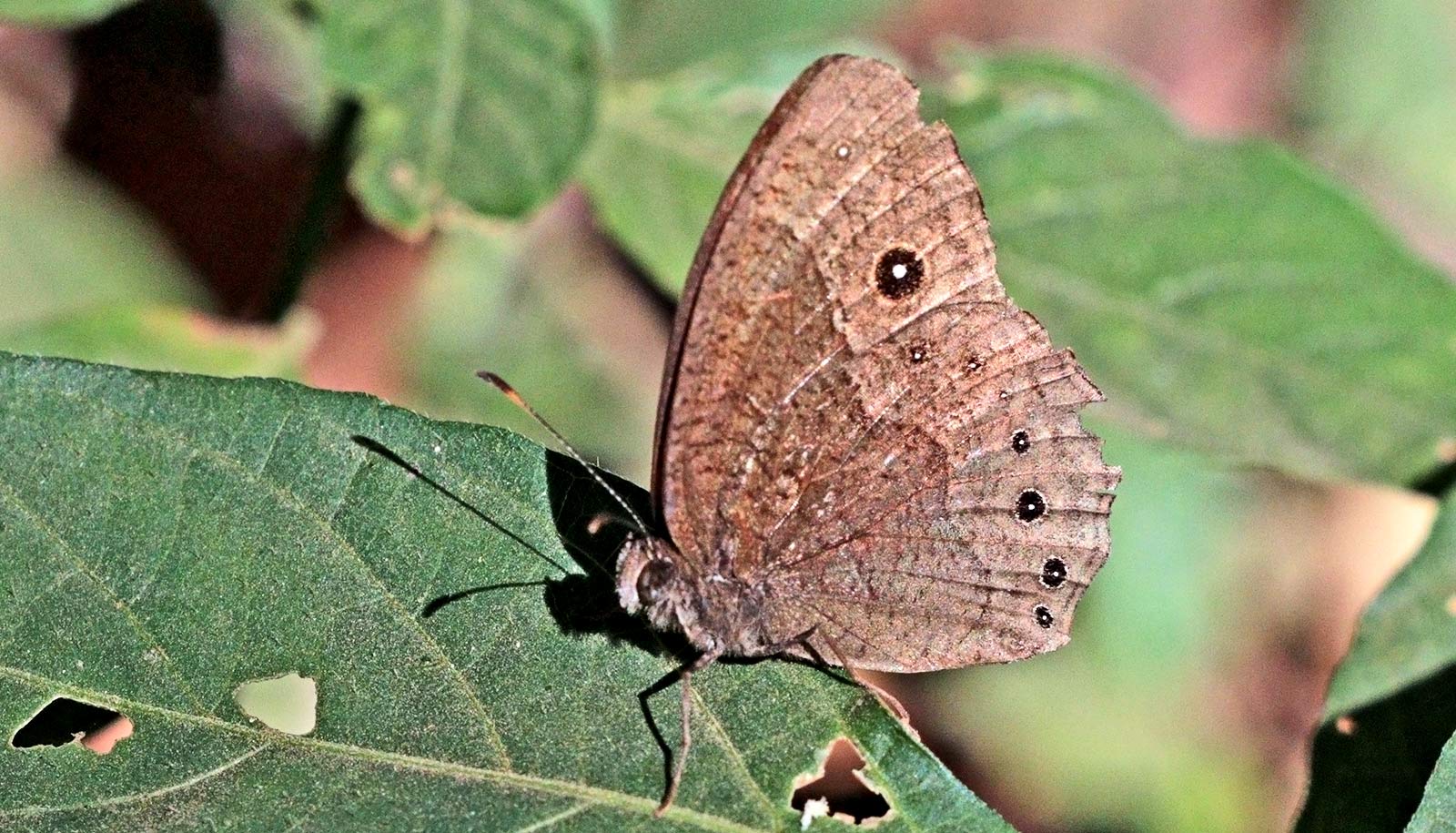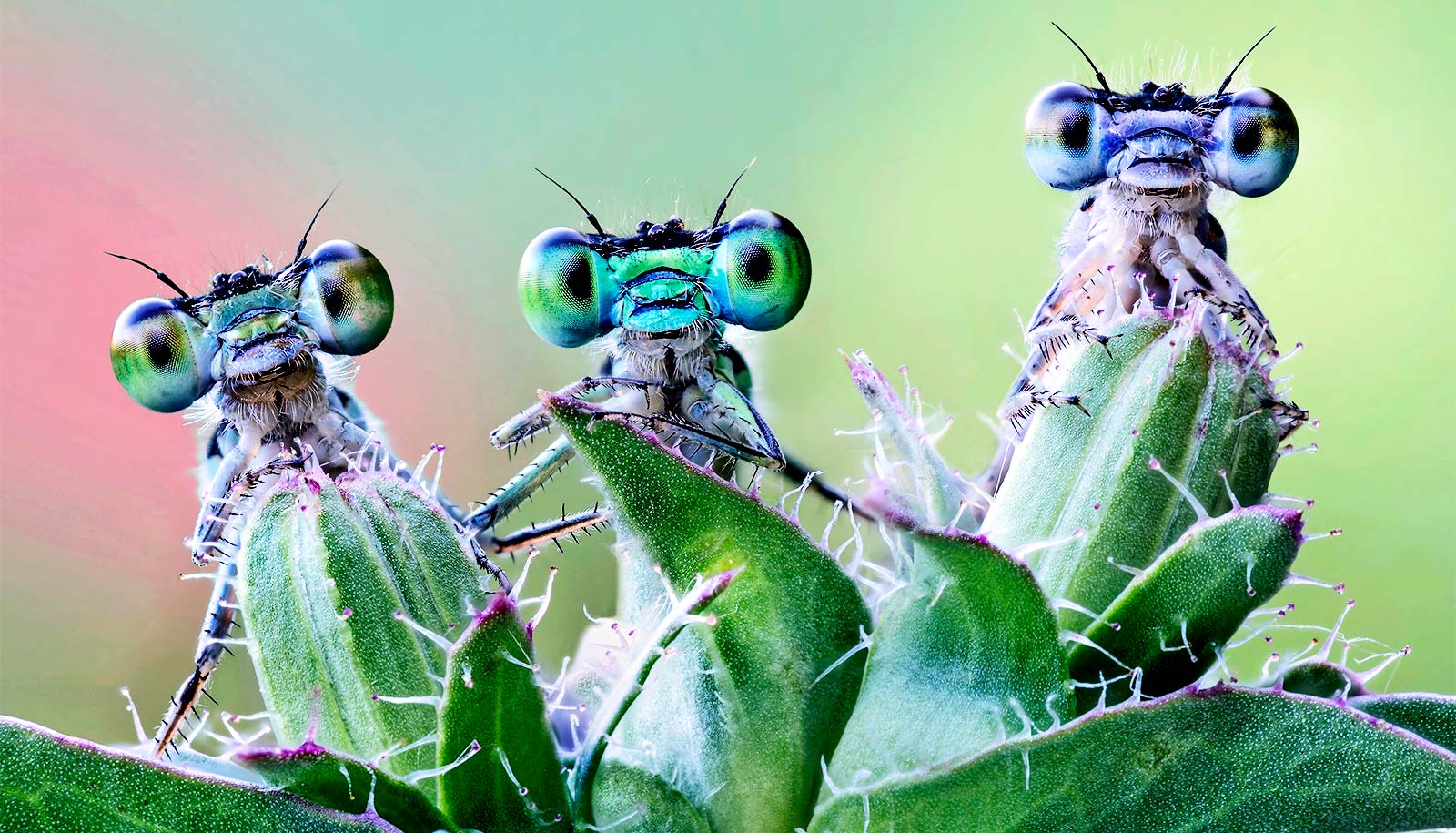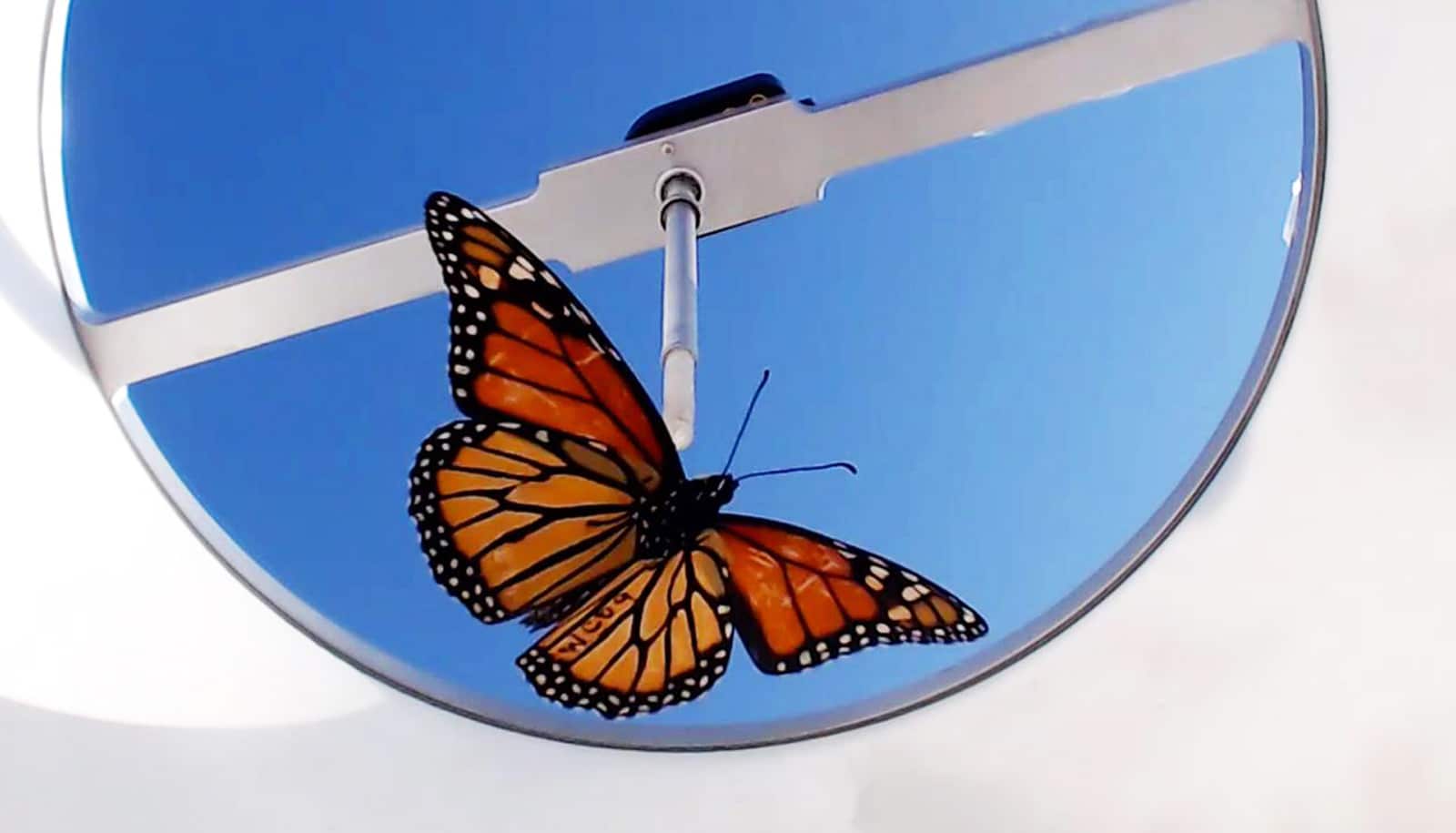The inheritance of acquired traits occurs among butterflies, according to research on the bush brown butterfly.
It was long thought that physical characteristics that organisms acquired during their lifetime could not pass on to their offspring. However, in recent years, the theory of inheritance of acquired traits has gained support, with studies showing how offspring of rats and tiny worms inherit behaviors that their parents acquired in response to particular environmental stimuli—even when the stimulus is no longer present in the offspring’s generation.
The researchers find that both Bicyclus anynana caterpillars and adult butterflies can learn to prefer new odors if they experience them during their development or early in life.
The researchers also found that the offspring of the exposed caterpillars and butterflies show the same new preferences as their parents did, even though they were not exposed themselves. This indicates that their parents have passed their new acquired preferences to their offspring.
In a study in Evolution, NUS doctoral student V. Gowri, research fellow Emilie Dion, and collaborators exposed caterpillars and butterflies to new odors they typically do not experience in their natural environment. In the experiments, the researchers fed the caterpillars corn leaves—their usual food—coated with banana or with mango essence throughout their development. Most of these caterpillars preferred to eat leaves with the fruit essence after only a few days of exposure.
In a second study in Nature Communications, Dion and collaborators exposed young female butterflies to new sex pheromone blends, a perfume males produce to entice females to mate with them. The results show that the exposed females later preferred to mate with males having the new pheromone blend.
“These results are significant because they show that insects are not only driven by their instincts, but can also learn from their previous experience and adjust their future behavior accordingly. The consequences of their learning abilities on their survival and reproduction can be very important,” says Dion.
“We are now investigating whether this behavioral transmission is maintained for more than one generation, and also probing the underlying molecular mechanisms in our model species, as these remain some of the most exciting unanswered questions in the field of evolutionary biology,” adds Antónia Monteiro, associate professor at NUS Biological Sciences and Yale-NUS College, who supervised both studies.
Source: NUS



